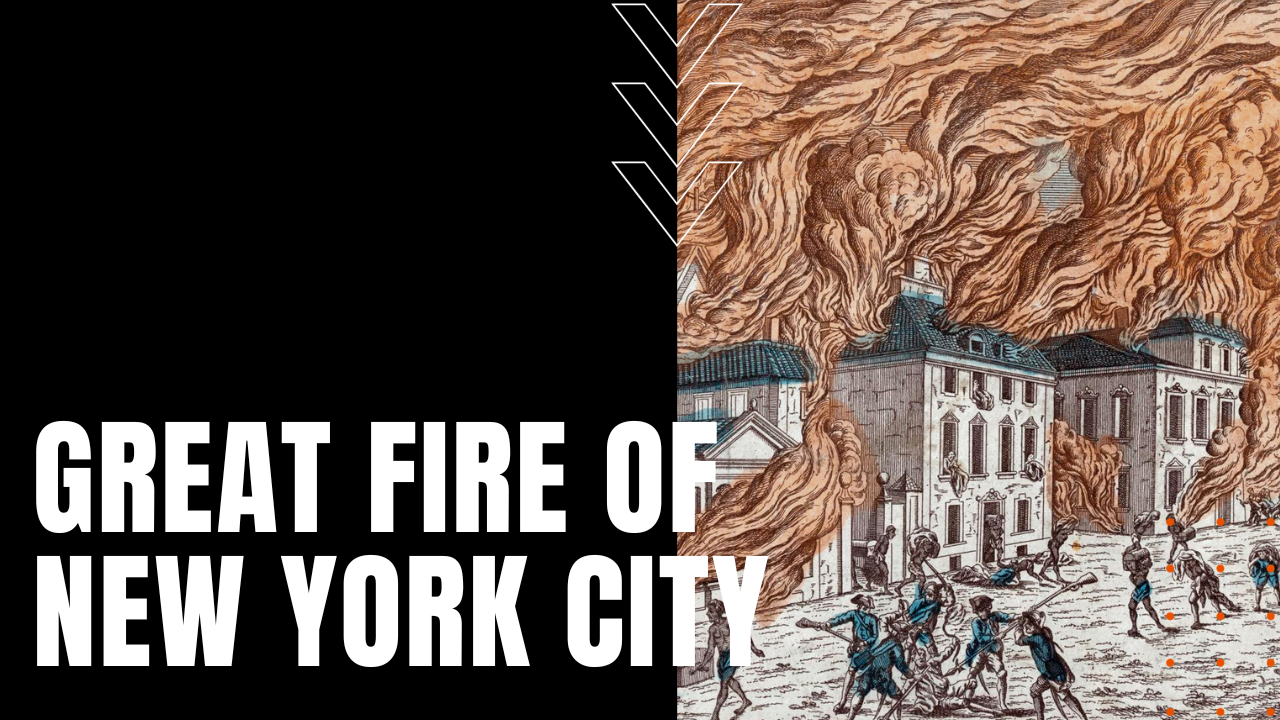The Great Fire of New York City

After hostilities commenced at Lexington and Concord on April 19th, 1775, Patriots quickly ousted Loyalist from New York City’s sprawling metropolis of some 25,000 colonials, shoehorned into some 4,000 homes and businesses. By the summer of 1776, however, British General William Howe initiated a campaign to take control of the strategically- important port city, from his stronghold on Staten Island, and after Howe successfully captured Long Island, commander-in-chief George Washington recognized the inevitability of Howe’s intentions to seize the city, moving his troops ten miles north to Harlem Heights.
And Intentional Fire?
After General Nathanael Greene and New York’s John Jay embraced the notion of burning the city to deny its benefits to the British—a move which was quickly rejected by the Second Continental Congress—when the British successfully took the city on September 15th, six days later, fire broke out on the evening of September 21st, in a wooden structure called the Fighting Cocks Tavern—a fun house frequented by some of the city’s most disreputable residents.
A Major Loss
Fueled by strong winds out of the southwest, fire quickly engulfed a good portion of the city, destroying upwards of 25% of a city already desperately short on warehouse and housing space. Residents poured onto the streets with their most valued possessions, taking shelter in present-day City Hall Park to wait out the fire storm. A wind shift the following day allowed British and American bucket brigadiers to snuff out the last remnants of the fire, leading the British to believe that the fire was intentionally set by renegade Patriots.
British Inquest
Questioning some 200 suspected Patriots, yet never filing any charges, General Howe wrote that ”a most bad attempt was made by a number of wretches to burn the town,” while Royal Governor William Tryon went so far as to point the finger as Washington himself. In his own defense, Washington would write in letter to John Hancock on September 22nd, announcing his clear denial of any knowledge of the fire’s origin and causation, while in a second letter to his cousin Lund, Washington later wrote that “Providence—or some good honest fellow—has done more for us than we were disposed to do for ourselves,” making the Great Fire of New York City, a lasting mystery in early American history.
